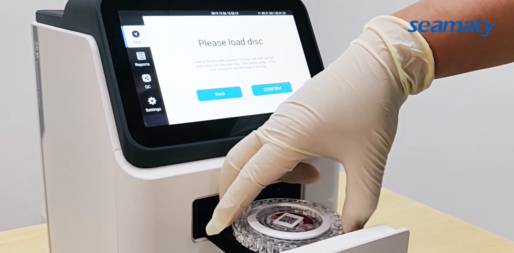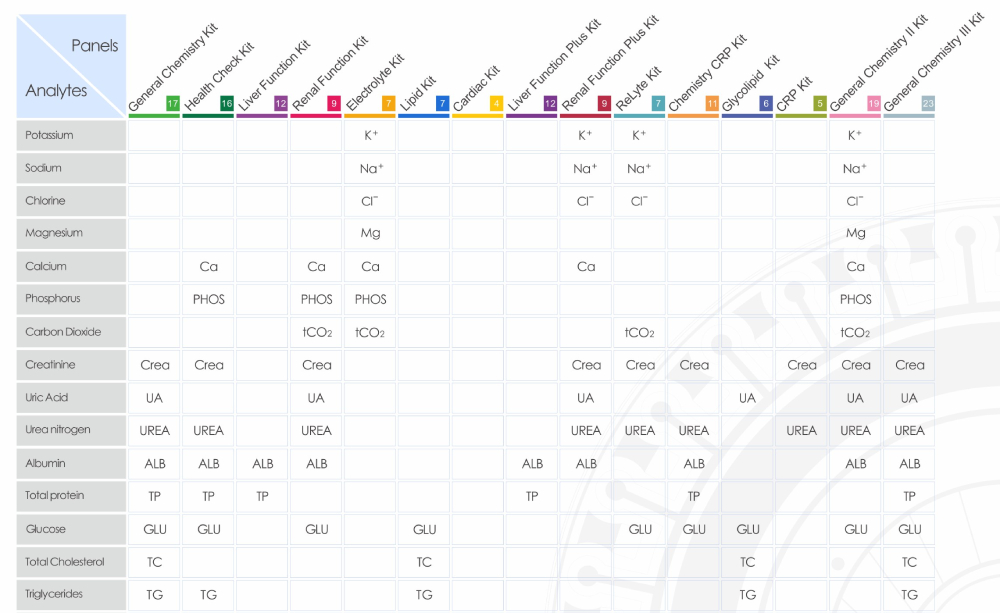What is a small dry biochemistry analyzer?
Like the large clinical fully automated biochemistry analyzers, the small dry biochemistry analyzer is used for
biochemical tests. They can check liver function, kidney function, blood glucose, blood lipids, and electrolytes such as potassium, sodium, and chloride. These tests can check the patient's liver and kidney function, electrolyte disorders, etc. It can be said that biochemical examination includes the examination of most organ functions of the body and is an important basic assessment, so the biochemical analyzer is widely used.
The convenience of the small dry biochemical analyzer makes it possible to provide basic biochemical assessment for patients in primary care and emergency scenarios, allowing doctors to have a basic understanding of the internal environment of the patient's body in order to detect potential diseases in a timely manner, which is important for doctors' diagnosis and treatment.
What are the test items of dry biochemistry analyzer?
The principle of dry biochemistry analyzer and large biochemistry is not very different, the biggest difference is that dry biochemistry analyzer uses dry reagents, while large biochemistry is basically wet liquid reagents. In terms of testing items, biochemistry mainly includes liver function test, kidney function test, blood electrolytes, blood lipid test, blood glucose test, cardiac enzyme spectrum test and other items. And the above-mentioned major items can also contain more minor items. The biochemical tests in medical tests can be as many as hundreds of items.
So what are the testing items of the dry biochemistry analyzer? Here is an example of the Seamaty SD1 dry biochemistry analyzer.
The Seamaty
SD1 dry biochemistry analyzer currently has 33 tests. It contains 29 test items and 4 calculation items: globulin, white globulin ratio, LDL cholesterol, and urinary anhydride ratio.
1. liver function: total protein (TP), albumin (ALB), alanine aminotransferase (ALT), alkaline phosphatase (ALP), glutamyl transferase (GGT), aspartate aminotransferase (AST), total bile acid (TBA), total bilirubin (TB), cholinesterase (CHE)
2. renal function: creatinine (Crea), urea (Urea), uric acid (UA)
3. Blood glucose and lipids: total cholesterol (TC), triglycerides (TG), glucose (GLU), high-density lipoprotein (HDL)
4. electrolytes: sodium (Na), potassium (K), chlorine (Cl), calcium (Ca), inorganic phosphorus (PHOS), magnesium (Mg), carbon dioxide (tCO2)
Pancreas: amylase (AMY), lipase (LPS)
6. myocardium: creatine kinase (CK), lactate dehydrogenase (LDH), alpha-hydroxybutyrate dehydrogenase (HBDH), lactate dehydrogenase (LDH)
Doctors can choose the appropriate biochemical test according to the patient's specific symptoms. The Seamaty automatic dry biochemical analyzer meets the main biochemical test items and can meet the needs of most hospitals and patients.



